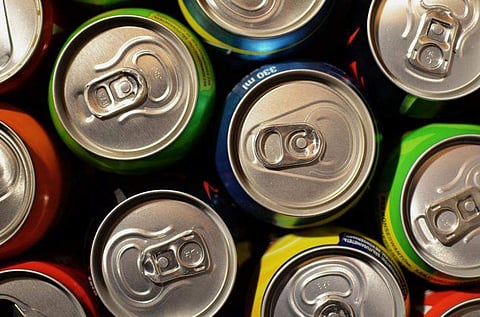

Malleable, durable and more importantly, recyclable — aluminum is so versatile as a metal. But is it being used to its optimum level? Not yet. Take for example beverage packaging cans made of this metal — isn't there a lot more we can do than just discard them into a dustbin. To explore the possibilities by involving the youngest and brightest minds from colleges, the Sustainable Circular Challenge was organised by Ball Beverage Packaging India recently. Over 70 teams participated and eight of them faced off during the grand finale held on World Environment Day.
While it was students of Department of Management Studies, IIT Delhi who emerged victorious, it was hard not to be taken in by the idea of students of Xavier Institute of Management Bhubaneswar (XIMB), who were the runners-up. So we got in touch with the six team members, who call themselves The Thinkers, via Zoom and they showed us exactly how effective their idea is. "In a country like India, sustainability can come at a cost and since packaging can actually diminish profits, we planned to use the existing infrastructure to help them," begins Bandhan Pramanik. Their idea is to change the design of the cans to have a re-attachable lid so that it can be used a couple more times. Installing beverage dispensers in public spaces is the next stage, wherein, cans once brought can be refilled and here is where their use of barcodes comes in. Bar codes on the cans ensure that they can be refilled only a certain number of times keeping health standards in mind.
"Since it's a refill, it costs the customers less to buy another and keeps the manufacturing cost for the companies under control," informs Protyay Chakraborty. These reverse vending machines will also act as collection points for these cans and upon dropping it in their bin, consumers will earn points too. All this goes a long way in ensuring that the consumers don't have to buy cans again and again reducing waste. "We can also consider encouraging consumers to segregate these aluminum cans at home, the municipal corporations can collect them and via a partnership between them and the companies, the latter can collect it back from them," explains Bandhan. All these collected cans, instead of being melted into wires or new cans, are then sanitised and cleaned properly and brought back into circulation. How's that for reuse, reduce and recycle? "Currently, you pay about Rs 35 for a can. For a refill, you'll have to pay just Rs 7.68 and even if the company decides to charge Rs 16, which is still very less, they will earn 52% more in profit,'' shares Bandhan.
Participating in the competition itself was quite a rewarding experience for the whole team. "The judges wanted a lot of details and thankfully, we were well-prepared. We even worked out a pilot of our whole concept on paper so we were confident," says Bandhan. We can attest to that fact, their presentation was full of details that were extremely well-thought-out.
Glass bottles vs aluminum cans - What's saved when a ton is recycled?
- Glass bottles save 42 kilowatt-hours of energy while aluminum saves 14,000 KWh
- The former saves 19 litres of oil and the latter, 6,545 litres
- Glass bottles occupy 54 cubic feet of space in landfills while aluminum occupies 270 cubic feet
